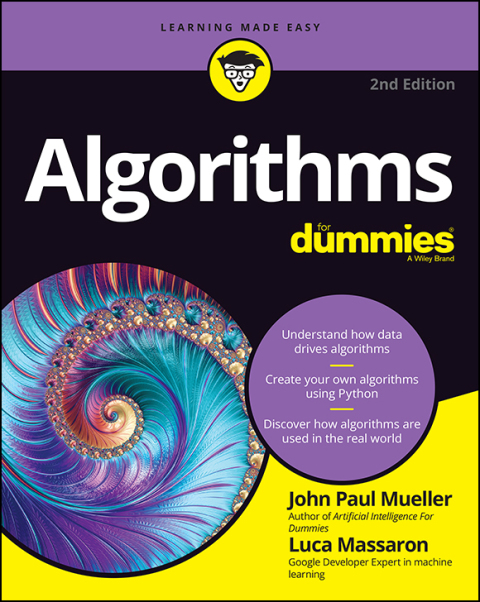Description
Efnisyfirlit
- COVER
- TABLE OF CONTENTS
- TITLE PAGE
- COPYRIGHT PAGE
- DEDICATION PAGE
- PREFACE
- I SHARED CONCEPTS OF ANCIENT CULTURES AND RELIGIONS
- Concepts and Terminology
- Religion
- The Universe
- Polytheism and Monotheism
- Myth
- The Concept of Sin
- Acts of Worship/Rituals
- Cult
- Official Cults
- Voluntary Cults: The Mysteries
- Religious Festivals
- Divination: Astrology, Oracles, Magicians
- Religion and Society
- Social Class
- Education
- Collegia
- Slavery
- Ancient Concepts of the Afterlife
- Monism/Dualism
- Funeral Rituals
- Funeral Games
- The Terms: Judaism, Jews, Christianity, Christians
- Jewish‐Christians and Gentile‐Christians
- Languages/Scriptures
- Old Testament/Canon
- Gentiles and Pagans
- Faith versus Rituals
- Creative Writing
- Summary
- Suggestions for Further Reading
- II THE HISTORY OF ISRAEL
- The Traditions of Israel
- Who Wrote the Jewish Scriptures?
- Genesis 1–11
- Abraham
- The Sacrifice
- Joseph and His Brothers
- The Book of Exodus
- Leviticus
- Purity/Impurity
- Numbers and Deuteronomy
- The Historical Books: Joshua, Judges, 1 and 2 Samuel, 1 and 2 Kings
- 1 and 2 Samuel
- The Rise of Kingship and David
- The Split into Two Kingdoms
- Disaster Strikes
- The Babylonian Empire
- Persia
- The Diaspora
- The Role of the Prophets
- A New Hope
- A Paradigmatic Shift and a New Disaster
- Antiochus Epiphanes IV (Syria, 216–154 BCE)
- The Maccabee Revolt
- Heaven and Hell
- Jewish Sectarianism
- Apocalyptic Eschatology
- Pompey and the Rule of Rome
- The Herodians
- Direct Rule of Judea by Rome
- The Jewish Revolt Against Rome (66–73 CE)
- Flavius Josephus (36 CE–100 CE)
- Josephus and Scholarship
- The Destruction of the Temple and Jerusalem
- The Importance of the Jewish War Against Rome
- Summary
- Suggestions for Further Reading
- EXCURSUS I: THE ORIGINS AND EVOLUTION OF SATAN
- III THE STORY OF JESUS OF NAZARETH IN THE GOSPELS
- The Crucifixion of Jesus
- The Context of Each Gospel
- The Gospel of Mark (ca. 69/70 CE)
- The Gospel of Matthew (85 CE?)
- The Gospel of Luke and the Acts of the Apostles (95 CE?)
- The Gospel of John (100 CE?)
- Problems Faced by the Writers of the Gospels
- The Relationship Among the Gospels
- The Priority of Mark
- Matthew and Luke: The “Q” Source
- Additional Sources for Matthew and Luke
- Sources for Mark
- Analyzing the Gospels
- The Passion Narrative/Historical Anomalies
- The Second Temple Complex
- The Arrest
- The Jewish Trial
- The Real Pontius Pilate
- The Crucifixion of Jesus
- Joseph of Arimathea
- What Really Happened?
- Jesus, the Ideal Martyr
- Summary
- Suggestions for Further Reading
- IV ACTS OF THE APOSTLES AND THE ORIGINS OF CHRISTIANITY
- The Date of the Acts of the Apostles
- The Genre of Luke‐Acts
- The Purpose of the Acts of the Apostles
- Sources for Luke‐Acts/Literary Devices
- A “Missionary” Religion
- The Commission in Acts 2
- Replacing Judas
- Jews, God‐fearers, and Gentiles (“Nations”)
- Gentiles (the Nations)
- Pentecost (Acts 2)
- Acts 4 and 5
- Acts 6: Hellenists, Hebrews, and the Story of Stephen
- Acts 7: Stephen’s Defense Speech
- The Narrative Function of Stephen
- Acts 8: Paul and the Persecution of the Believers
- Acts 9: The Turning of Paul
- Acts 10: Peter and the “God‐fearer” Cornelius
- Luke’s God‐Fearers
- Peter’s Explanation
- The Progress of the Missions
- Acts 15: The First Apostolic Council
- The Dictates of Acts 15
- Table Fellowship
- Jewish–Gentile Relations on the Ground
- What Is Missing in Acts 15
- The Gods Exist
- Luke’s Apologia to Rome
- The Typology of Rejection in Acts
- The Rejection of Paul in Acts
- Paul’s Defense Speeches in Acts
- The Politics of Empire
- The Imperial Cult
- Summary
- Suggestions for Further Reading
- V STUDYING PAUL’S LETTERS
- Dating Paul’s Letters
- Recurring Concepts, Issues, Arguments, and Themes
- Judaizers
- Faith versus Works of the Law
- No Idolatry
- Sin
- Atonement
- Grace
- Salvation
- Polemic and Rhetoric
- Why Then the Law of Moses?
- Reading Between the Lines
- The Philosophical Paul
- Dualism
- Christology
- The Problem of Anachronism in Reading Paul
- Paul’s Letters and the Gospels
- The Absence of Details
- Multiple Attestation
- “Not I, But the Lord”
- Apocalyptic Eschatology versus Realized Eschatology
- Persecution
- Church
- Forgiveness
- The Spirit
- Universalism
- Character and Psychology
- Summary
- Suggestions for Further Reading
- EXCURSUS II: PAUL THE PHARISEE
- VI LIFE IN THE MEDITERRANEAN CITIES
- City Architecture
- The Necropolis
- Patron Gods and Goddesses
- Temples
- Religious Festivals
- Religious Associations
- Synagogues
- Roman Engineering and Innovations
- Tenements
- Thermopolium and Caupona
- Greco‐Roman Views on Sex and Marriage
- Birth Control/Abortion
- Philosophical Views
- Human Sexual Intercourse
- Same‐Sex Attraction in the Ancient World
- Brothels
- Slaves
- Health and Welfare
- Systems of Government
- Religion and Philosophy
- Schools of Philosophy
- Common Views of Philosophy/The Philosophical Universe
- Plato, Socrates, and Platonism (428–348 BCE)
- Stoicism
- Epicurus and Epicureanism
- Epicures
- Philosophy and the Common People
- The Roman Penal System
- Gladiator Games
- The Emergence of the Imperial Cult
- Octavianus/Augustus
- Domitian (83–96 CE)
- Summary
- Suggestions for Further Reading
- EXCURSUS III: THE ORDEALS AND SUFFERINGS OF PAUL
- VII 1 THESSALONIANS
- 1 Thessalonians 1: The Opening Passage
- Chapter 2
- Receiving the Spirit
- Not a Burden to the Community
- 1 Thessalonians 2:13–16
- Paul Longed to See the Thessalonians
- Chapter 3: Sending Timothy and Persecution
- Chapter 4: A Life Pleasing to God
- The Delay of the Kingdom/Believers Who Have Died
- The Rapture
- Like a Thief in the Night
- Final Exhortations
- Summary
- Suggestions for Further Reading
- VIII GALATIANS:
- Date
- The Opening Passage (Galatians 1)
- Paul’s Defense of His Apostleship
- Galatians 2: The Second Trip to Jerusalem
- Galatians 2:11–21: Paul Rebuked Cephas
- Justified by Faith and Not Works of the Law
- From Solution to Plight
- Abraham
- The Law and the Promise
- The Curse of Deuteronomy
- Why Then the Law?
- Under the Control of Sin
- Paul’s Use of Metaphors, Analogies, and Allegories of Slavery
- Hagar and Sarah
- Galatians 5: The Nature of Christian Freedom
- Flesh versus the Spirit
- Galatians 6: Teaching on Behavior
- Summary
- Suggestions for Further Reading
- IX PHILEMON:
- The Purpose of the Letter
- Paul’s Concern for Onesimus
- Interpretive Issues
- Summary
- Suggestions for Further Reading
- X PHILIPPIANS
- Provenance and Composition of the Letter
- The Opening Passage
- “I am in Chains”
- Philippians 2: Imitating Christ
- Analysis
- Formation of the “Christ Hymn”
- The Worship of Christ
- Behavior
- Timothy and Epaphroditus
- Chapter 3: From the Past to the Present
- Chapter 4: A Final Appeal
- The Generosity of the Philippians
- Summary
- Suggestions for Further Reading
- XI 1 CORINTHIANS, PART I
- Ancient Corinth
- Roman Corinth
- The Temple of Aphrodite on the Acropolis of Corinth
- The Structure of the Letters
- Chapter 1: Factions
- On Wisdom (1 Corinthians 18–31)
- Different Views of Christ
- Chapter 4: The Nature of Apostleship
- Chapter 5: Sexual Immorality in the Community
- Chapter 6: Lawsuits Among Believers
- “Flee from Sexual Immorality”
- How to Live in the Interim: 1 Corinthians 7
- Concerning Change of Status
- Chapter 8: Food Sacrificed to Idols
- Chapter 9: Paul’s Rights as an Apostle
- Chapter 10: Israel’s Past
- Summary
- Suggestions for Further Reading
- XII 1 AND 2 CORINTHIANS, PART II
- Chapter 11: Head Coverings
- The Abuses at the Lord’s Supper
- Chapter 12: Spiritual Gifts
- The Body Is One
- Chapter 13: A Discourse on Love, “a More Excellent Way”
- Chapter 14: More Teaching on Behavior
- Directions for the Assembly
- Resurrection: 1 Corinthians 15
- The Resurrection Body
- “A Spiritual Body”
- 2 Corinthians
- 2 Corinthians 3: The Greater Glory of the New Covenant
- The Body and the Resurrection Life
- 2 Corinthians 10: Paul’s Defense of His Ministry in Corinth
- More on False Apostles
- 2 Corinthians 12: Paul’s Heavenly Journey
- Summary
- Suggestions for Further Reading
- XIII ROMANS
- Paul’s Introduction
- What Was Wrong with the World
- The Judgment of God
- The Jews and the Law
- The Advantage of the Jew
- Righteousness Only Through Faith
- Romans 5 and 6
- The Analogy of Adam and Christ
- Romans 7
- Life in the Spirit
- Future Glory
- Romans 9–11: God’s Election of Israel
- Salvation for All
- The Salvation of the Gentiles
- All Israel Will Be Saved
- Romans 12: The New Life in Christ
- Romans 13
- The Time Is Short
- More on Behavior
- Closing Remarks
- Paul’s Plan to Visit Rome
- Summary
- Suggestions for Further Reading
- EXCURSUS IV : PAUL AND IMPERIAL ROME
- XIV THE DEUTERO‐PAULINE LETTERS
- 2 Thessalonians
- The Letter to the Ephesians
- Ephesians 2
- Ephesians 3
- The Letter to the Colossians
- The Letter to the Hebrews
- The Pastorals
- Elders and Bishops
- The Election of Bishops
- Deacons
- A Change in Leadership
- Candidates and Elections
- The Theology of Hierarchy and Election
- The Letter of James
- 1 and 2 Peter
- The Johannine Letters
- The Letter of Jude
- Summary
- Suggestions for Further Reading
- XV THE CHURCH FATHERS’ INTERPRETATIONS OF PAUL
- The Context of the Church Fathers
- Persecution
- The Octavius of Marcus Minucius Felix
- The Church Fathers and Paul’s Letters
- Philosophy and the Ancient Roots of Christianity
- The Church Fathers and the Doctrine of the Logos
- Justin Martyr
- Resurrection of the Dead
- Irenaeus
- Tertullian
- Adversos Literature
- The Methods of the Church Fathers
- Justin Martyr’s Dialogue with Trypho the Jew
- Emperor Hadrian (76–138 CE)
- Christian Views on the War
- Allegory
- The Ten Commandments
- The Result of Reading Jewish Scriptures as Allegory
- The Innovation of Orthodoxy and Heresy
- The Nag Hammadi Library
- What Is Gnosticism?
- Allegory
- That Zen Moment
- Why Were the Gnostics Condemned as Heretics?
- Gnostic Gospels
- Marcion of Sinope (85–160 CE)
- The Antitheses
- Marcion’s Scriptures
- The Formation of the New Testament Canon
- Christian Innovations on Human Sexuality
- The Books of the Prophets
- Positive and Negative Roles of Women
- Human Intercourse as a Sin
- Radical Christians
- Celibacy and Chastity
- Lust as a Necessary Evil
- Eschatology
- Summary
- Suggestions for Further Reading
- XVI LEGENDS OF THE APOSTLES AND PAUL
- The Infancy Gospel of Thomas
- The Protoevangelium of James
- Mary and the Brothers of Jesus
- Acts of the Apostles
- The Acts of Thomas
- The Acts of Peter
- Simon Magus
- Acts of Peter and Paul
- Pseudo‐Clementine Literature
- The Acts of Paul
- Nero and the Persecution of Christians, ca. 64 CE
- The Letters of Paul and Seneca
- Apocalypses
- Greek Romance Novels
- The Acts of Paul and Thecla
- Summary
- Suggestions for Further Reading
- EPILOGUE
- APPENDIX I: BIBLICAL TIMELINE FOR THE HISTORY OF ISRAEL
- APPENDIX II: CHRONOLOGY OF PAUL’S LIFE AND LETTERS
- GLOSSARY
- INDEX
- END USER LICENSE AGREEMENT






Reviews
There are no reviews yet.